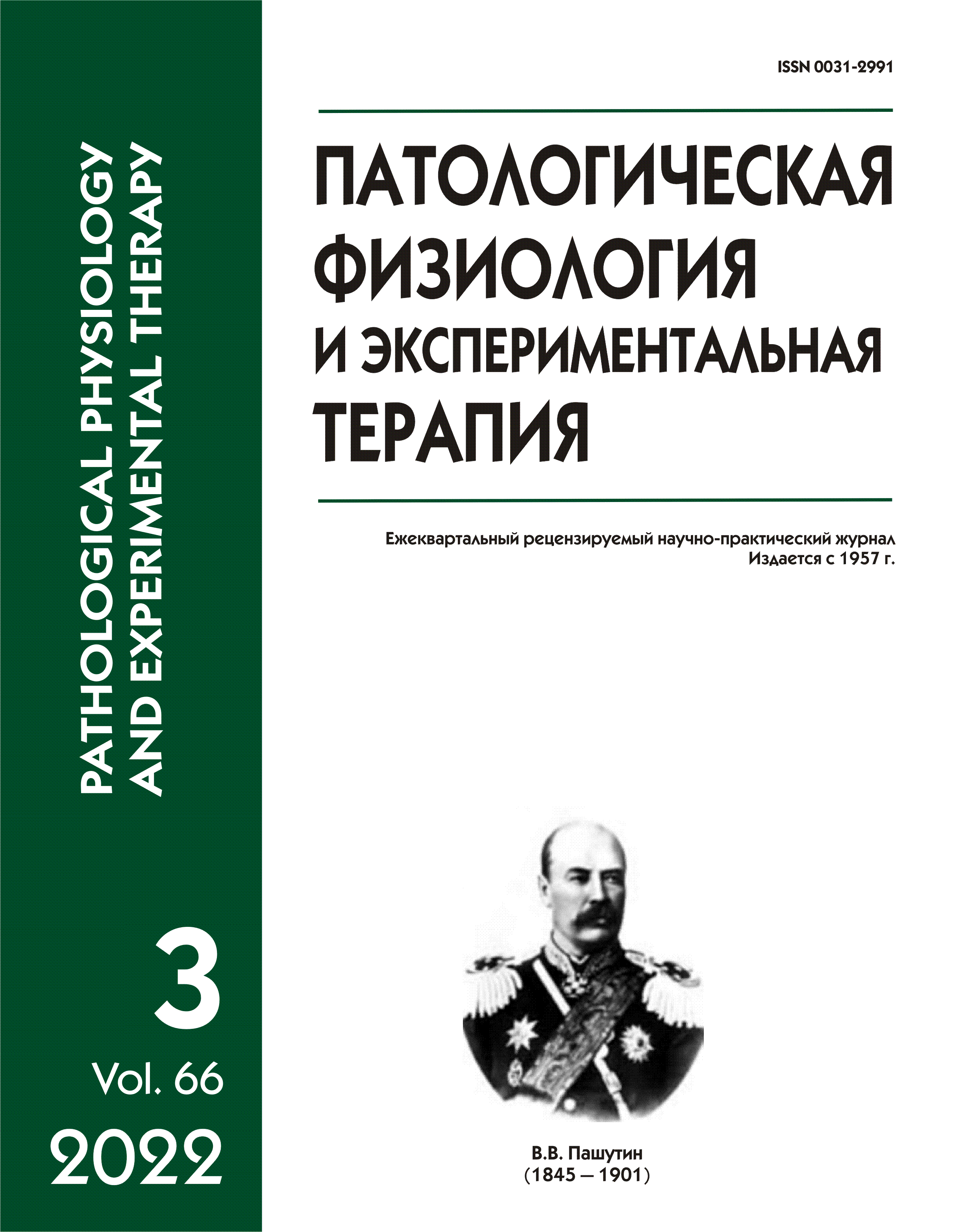Effect of caloric restriction on aging and neurodegenerative diseases
Abstract
Research using mammalian models has shown that calorie restriction slows the aging process, increases life expectancy, and delays the onset of a number of age-related diseases, including neurodegenerative diseases. During caloric restriction, the organism goes into a viability maintenance mode, which is realized by the activation of stress resistance programs and the slowing of growth and reproduction processes. Very pronounced changes in intracellular processes lead to the realization of these programs, which include activation of mechanisms for repair of macromolecules and for restoration of the length of chromosome telomeres. This contributes to maintaining the stability of the genome and proteome, and the survival of stem cells. In addition, metabolic processes are reprogrammed, and their rate changes due to the influence of nutritional restriction on epigenetic control mechanisms. Caloric restriction is a dietary strategy that may have an impact on the rate of neurodegeneration. Therefore, diet and nutrition are among the most significant modifiable external factors that regulate cell metabolism. This approach offers promising ways for studying the influence of diet and nutrition on the mechanisms of neuroinflammatory and neurodegenerative processes. This article discusses mechanisms that change cellular function such that cells switch to life support programs during nutritional restriction. This is manifested by changes in the processes of neuroinflammation and neurogenesis in response to epigenetic programs that trigger the sirtuin response and change mitochondrial biogenesis.






